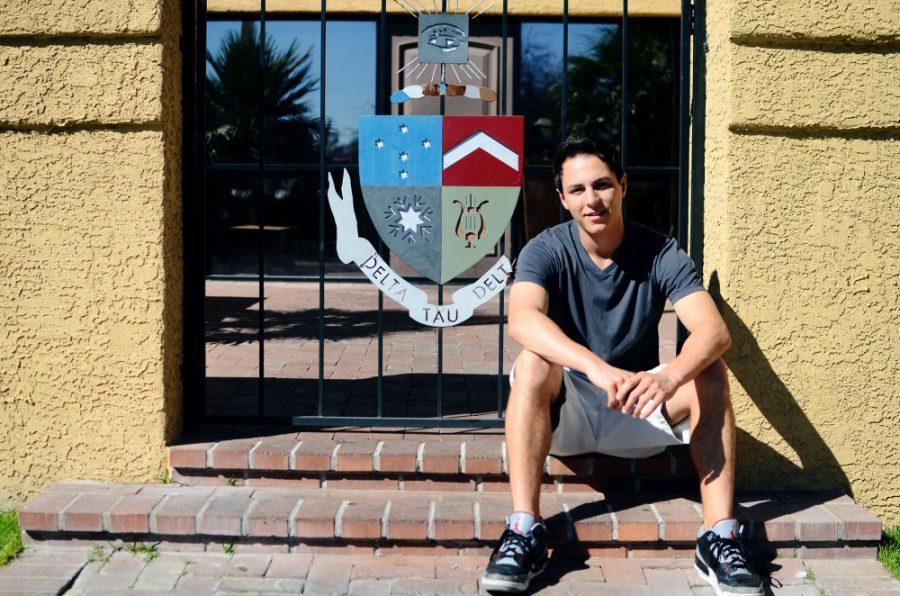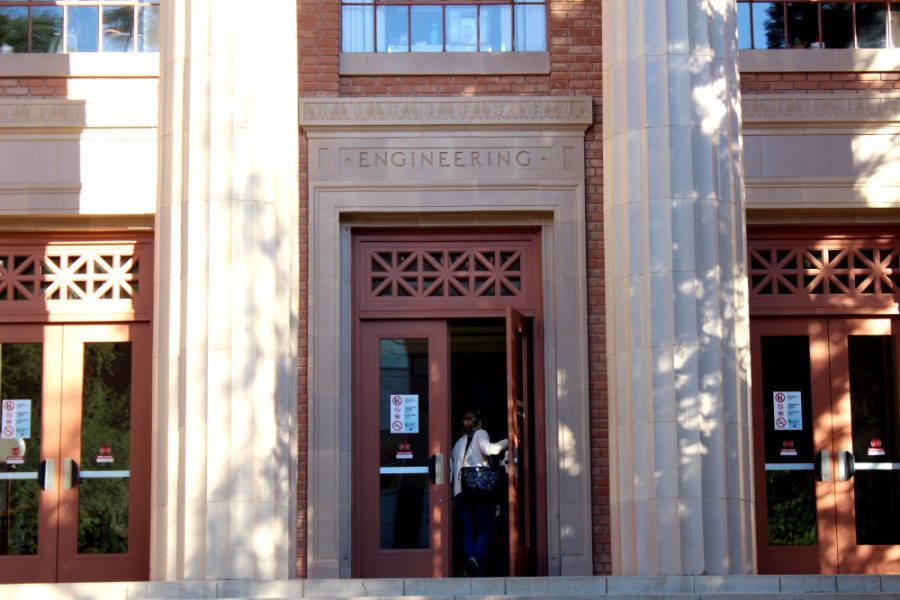Since losing a friend to meningitis two years ago and almost losing his own life, one UA student is determined to educate people about meningitis and raise money for the cause.
Alex Flatley, a general studies junior, took a trip to Campus Health Service just before finals week last May with a 102.6 degree fever and severe vomiting, but was told he had the flu and quickly dismissed.
After vomiting non-stop for about two days, Flatley headed to the Tucson International Airport to fly home for summer vacation. When Flatley arrived home in Palo Alto, Calif., his mother scheduled an appointment for Flatley with their family doctor. But when she tried to feed Flatley a piece of toast, his response was “What is toast?” At that moment, Flatley’s mother knew something was wrong, and immediately took him to Stanford Hospital & Clinics.
Within 30 minutes of arriving at Stanford Hospital & Clinics, Flatley fell into a coma. After conducting four spinal taps and various other tests, the doctors discovered that Flatley had viral meningitis and encephalitis. The Mayo Clinic website defines meningitis as “an inflammation of the membranes surrounding your brain and spinal cord,” and encephalitis as the “inflammation of the brain” with “viral infections [being] the most common cause of the condition.”
Four days after falling into a coma, Flatley woke up. Flatley had no recollection of what had occurred prior to him falling into a coma, and he could not recognize familiar faces — even his mother’s.
Two weeks after arriving at Stanford Hospital & Clinics, Flatley was released from the hospital. He was told that he would be bedridden for two to three years.
“I want to keep pushing,” Flatley told his mother every day as he attempted to take steps around their home in Palo Alto, Calif. He was making noticeable progress, but a short month after his return, Flatley relapsed and suffered from a grand mal seizure.
Flatley once again fell into a coma, but came out of it stronger. Despite his recovery, he will never be able to use his sense of smell again. He also suffers from retrograde amnesia.
“A lot of memories from before I got sick, I don’t remember them,” Flatley said.
With the summer coming to an end, Flatley’s doctors told his mother that he should not return to school, warning her that the workload and stress could cause more seizures. But Flatley was determined to make a change, and in the fall of 2013 he returned to the UA. Now, he works to raise awareness about a disease that many people know little about.
Lee Ann Hamilton, the assistant director of Health Promotion and Preventive Services at Campus Health, urges students to be aware of symptoms of meningitis, and to seek medical attention quickly if you experience typical symptoms.
“Any pain in back, neck and head, especially stiffness in the neck, is the most common symptom of meningitis,” Hamilton said.
Flatley is working with the Meningitis Foundation of America and Campus Health to educate college students about the symptoms of meningitis.
“What I want everyone to know is that it moves so fast,” Flatley said. “The doctors said if I had come in 30 minutes later, I would have had zero chance.”
Hamilton explained that students who live in group settings, such as residence halls and greek houses, have a higher chance of contracting meningitis.
“It is important to get the vaccine, even though it covers only 70 percent of meningococcal meningitis,” Hamilton said.
As an active member of Delta Tau Delta fraternity, Flatley is spearheading a philanthropy event called Delt’s Lion Heart Challenge. The name originated from Flatley’s late father, who always told him to “have the heart of a lion.” The event, taking place on May 3, will encourage students to educate themselves on the symptoms of meningitis while competing in an obstacle course.
Flatley designed T-shirts, one specifically for the UA and one to be sold nationally, with 100 percent of the proceeds going to the Meningitis Foundation of America. In addition, BTO Self Serve Yogurt on Speedway Boulevard will hold a percentage night for the effort on April 30. The store will donate 20 percent of the proceeds from every customer who mentions Delt’s Lion Heart Challenge to the Meningitis Foundation of America.
Flatley said his continued efforts will be worth it if he can save at least one person from suffering this disease.
“I’m going to tell my story,” Flatley said, “because all the stories about meningitis are negative.”









